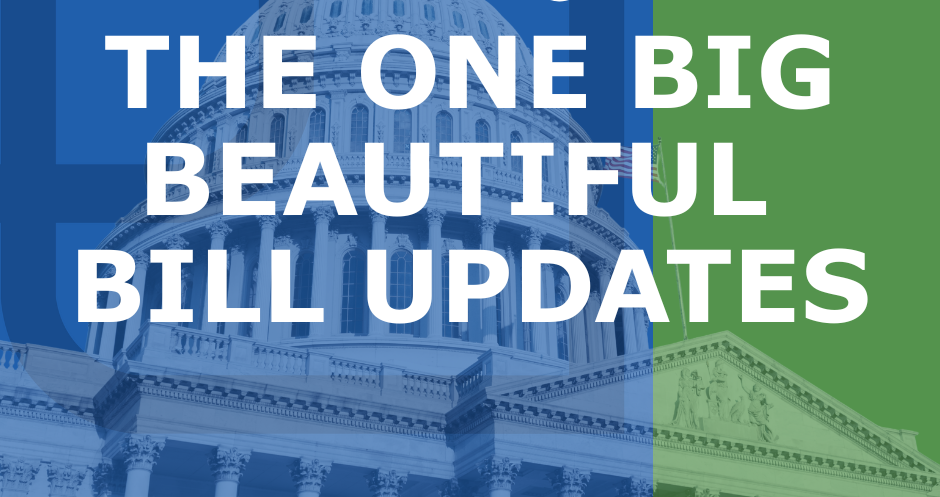The recently passed One, Big, Beautiful Bill Act (OBBBA) marks a significant shift in federal tax policy, as President Trump and congressional Republicans move to curtail several clean energy tax benefits that were established or expanded by the Inflation Reduction Act (IRA).
Below is an overview of the major individual tax credits that are scheduled to be reduced or eliminated in the near future.

Clean vehicle tax credits
If you’re considering purchasing a clean vehicle, you may want to act quickly to take advantage of tax incentives that are set to expire:
New clean vehicle credit. This credit offers up to $7,500 for qualifying new electric and fuel cell vehicles, depending on how the battery components and critical minerals are sourced. Vehicles that meet only one of the sourcing criteria may be eligible for a reduced $3,750 credit. Originally set to expire in 2032, this credit now ends on September 30, 2025.
The maximum manufacturer’s suggested retail price is $55,000 for cars and $80,000 for SUVs, trucks and vans. To qualify, your adjusted gross income (AGI) must not exceed $150,000 ($300,000 for married couples filing jointly and $225,000 for heads of households).
Used clean vehicle credit. Buyers of eligible used EVs or fuel cell vehicles may claim up to $4,000, or 30% of the purchase price — whichever is lower — if bought from a dealer. This credit also expires on September 30, 2025.
The maximum price of the vehicle is $25,000. To be eligible for the credit, your AGI must not exceed $75,000 for single taxpayers ($150,000 for married joint filers and $112,500 for heads of households).
Alternative fuel refueling property credit
Homeowners who install equipment to recharge EVs or dispense clean fuel may qualify for the alternative fuel vehicle refueling property credit. The IRA had extended and expanded this benefit.
For property placed in service at a primary residence after 2023, the credit equals 30% of the installation cost, up to $1,000 per item (charging port, fuel dispenser, or storage property). Equipment must be placed in service by June 30, 2026, instead of the previous end-of-2032 deadline.
Home energy tax credits
The OBBBA shortens the lifespan of several tax credits available to individual homeowners. Those planning home upgrades may want to act swiftly to make the most of these two opportunities.
Energy efficient home improvement credit. This tax break provides a 30% nonrefundable credit for qualified expenses such as energy-efficient doors, windows, skylights, insulation, heat pumps and home energy audits. The maximum credit you can claim this year is $1,200.
There are no income restrictions, but credit caps vary by item. In 2025, credit limits include:
- $250 per exterior door ($500 total),
- $600 for windows, central A/C, panels, and select equipment,
- $150 for energy audits, and
- $2,000 for heat pumps, water heaters, and biomass systems (superseding the usual $1,200 limit).
This credit was previously scheduled to end after 2032. The expiration has been moved up to December 31, 2025.
Residential clean energy credit. This tax break provides a 30% nonrefundable credit for renewable energy systems like solar, wind, geothermal, and biomass installations. There are no income limits. Under prior law, this credit was set to expire after 2034. The OBBBA makes the new expiration date December 31, 2025.
Maximize Your Savings While You Can
With the OBBBA significantly shortening the window for green tax incentives, timely action is essential. If you’re considering taking advantage of these benefits, now is the time to act.
Important: These are all new changes, and further guidance from the IRS and Treasury Department is expected. The details may change as new regulations and clarifications are issued. Be sure to consult with your tax advisor to understand how these changes affect your specific situation.
RUDLER, PSC CPAs and Business Advisors
This week's Rudler Review is presented by Alexis Ludtke, CPA.
If you would like to discuss your particular situation, contact Alexis at 859-331-1717.

As part of Rudler, PSC's commitment to true proactive client partnerships, we have encouraged our professionals to specialize in their areas of interest, providing clients with specialized knowledge and strategic relationships. Be sure to receive future Rudler Reviews for advice from our experts, sign up today !